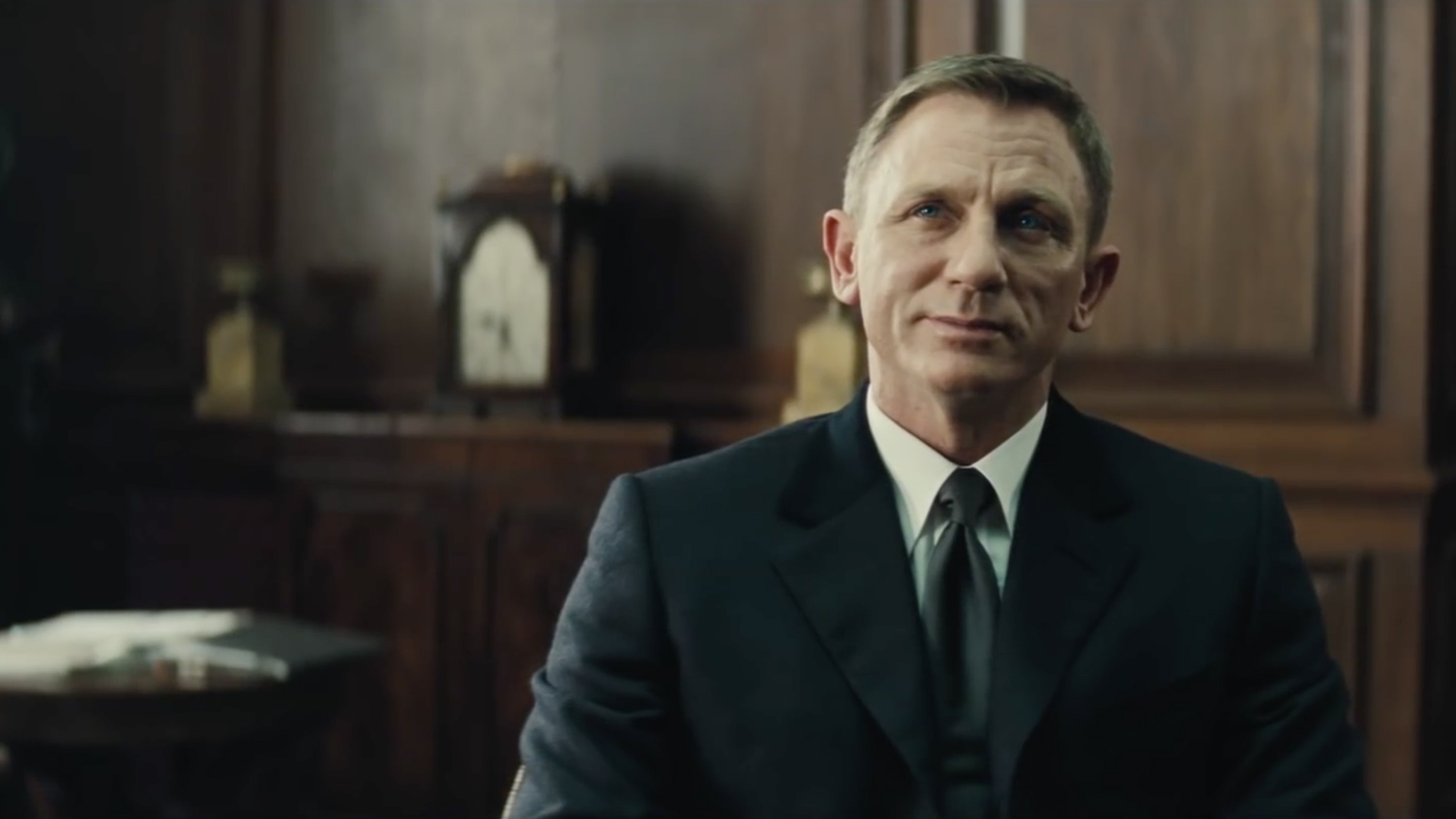Spectre starts writing checks it can’t cash from its very first scene. The film opens with a breathtaking tracking shot, then rapidly devolves into the same tired surveillance sequence from every other spy movie ever. This launches the most boring entry in the Blond Bond franchise by far, a distinction accurately captured by Sam Smith’s equally bland theme, “Writing on the Wall.”
Spectre’s artfully choreographed opening scene promises a much more compelling Bond than either director Sam Mendes or lead actor Daniel Craig seem willing to deliver. Both parties have phoned it in so thoroughly, you can actually see it on the other actors’ faces. Ralph Fiennes, Ben Whishaw, Andrew Scott, and Naomie Harris all deliver, but their performances are tinged with a why-bother resignation every time they interact with Craig, and the temporary thrill of seeing Sherlock’s Scott on screen is quickly replaced by the overwhelming desire to go home and re-watch Sherlock instead.
This pattern of disappointment and undelivered promises is the lone thread that strings together a clumsy patchwork of by-the-book Bond tropes. The promise of a compelling plot is squandered by twists as boring as they are predictable; the promise of a Christoph Waltz villain is squashed by his restrained interpretation of a character begging for some classic Waltz camp and a dearth of screen time (he appears in maybe an eighth of the overlong film); the promise of an age-appropriate Bond girl is destroyed by yet another blonde nymphette, and so on.
This pattern of disappointment and undelivered promises is the lone thread that strings together a clumsy patchwork of by-the-book Bond tropes.
Perhaps it’s Craig’s recent public admonition of Hollywood’s male to female age discrepancy that makes his pairing with Léa Seydoux feel so very wrong. The fresh-faced (read: very young looking) Seydoux plays Madeleine Swann, Bond’s primary love interest in Spectre. Unfortunately, the much-discussed casting of Monica Bellucci amounted to little more than a glorified cameo.
Age gap notwithstanding, Craig and Seydoux’s pairing still feels off. Nothing about Swann and Bond’s relationship feels earned—especially in a film that, in a desperate grab for continuity, trots out references to love-of-Bond’s-life Vesper Lynd every chance it gets. The couple’s zero-to-sixty trajectory feels so forced that when Swann tells Bond “I love you,” it is nearly impossible not to shout, “No you don’t!” at the screen. And this “I love you” comes on the tail of an earth-shattering, by all rights deal-breaking revelation about Bond, which Swann shrugs off as easily as her satin gown. It all just feels too easy.
In fact, everything feels too easy for Spectre’s Bond, from falling in love, to escaping an exploding building, to a villain’s contraption conveniently and inexplicably not working the way it’s supposed to. In two and a half hours, we never once see him struggle. Sure, we know he’ll find a way out of every pickle, but watching him do so is half the fun—fun that the overly serious Spectre desperately needs. If this really is Craig’s final Bond movie (the script’s mad dash to tie up loose ends certainly lends those rumors credence), it is a poor sendoff, ending the Blond Bond franchise not with a bang, but a thud. FL







